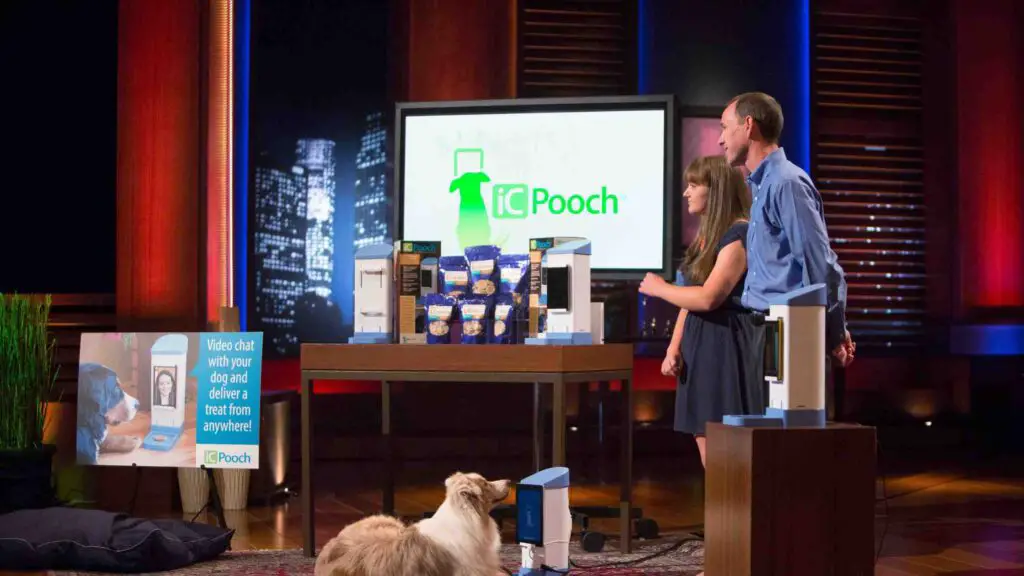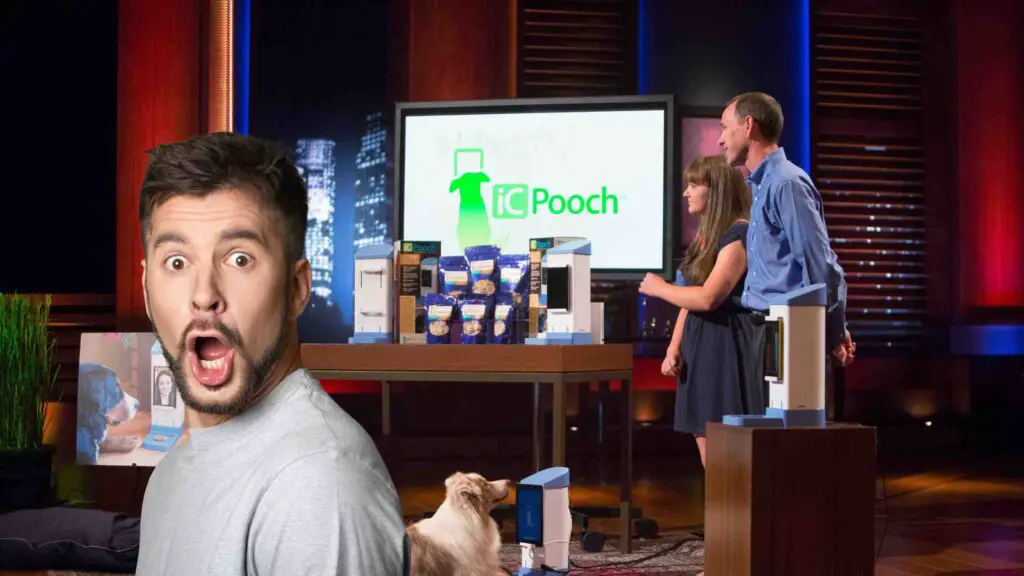The iCPooch is a novel device that uses remote interaction to alleviate pet anxiety. It was founded by a young entrepreneur named Brooke Martin. Her unique proposal gained attention on “Shark Tank” and other platforms.
iCPooch was a Wi-Fi-connected treat dispenser. It was created to help pet owners stay in touch with their dogs when away from home. The device includes a tablet docking unit that enables owners to video chat with their pets and disburse rewards remotely via an app. The concept was simple but unique. It combines modern communication technology with a pet care solution.
Despite its initial excitement and limited success, iCPooch finally stopped operations in 2017. This article discusses iCPooch’s history, including its rise, decline, and current status.
DiscontinuedNews is impartial and independent, and every day, we create distinctive, world-class programs, news, and content that inform, educate and entertain millions of people worldwide.
Total Net Worth
iCPooch appeared on Shark Tank in April 2015, it was valued at approximately $750,000. However, since ceasing operations in 2017, its current net worth remains uncertain as of 2023.
What is iCPooch?
Brooke Martin’s iCPooch is an innovative creation. It uses technology to relieve the fear of separation in dogs. The device enabled pet owners to connect with their pets via video chat and remotely give rewards. It got much attention once Martin appeared on Shark Tank.
The device was basically a tall, narrow unit with a base, a treat compartment, and a docking station for a phone or tablet. The concept was that owners could use the iCPooch app to view and communicate with their pets from anywhere. Thus, it offered visual and auditory comfort to dogs suffering from anxiety during separation.
History of iCPooch
A 12-year-old Brooke Martin saw her golden retriever, Kayla, suffering from separation anxiety. So, she came up with the idea for pooch. Martin worked with her father to develop a device to help her pet. Martin set up a Kickstarter effort in 2013 to fund the project, with the goal of raising $70,000. The campaign needed to meet its goal.
Martin, on the other hand, refused to give up. She modified her plan and set a more realistic goal of $20,000 for a second campaign in 2014, which raised nearly $30,000. This win paved the path for iCPooch to acquire further attention. In October 2014, they won Geekwire’s “Inventions We Love” challenge. The following media publicity, including appearances on technology news shows and podcasts, drew the interest of Shark Tank producers.
Martin had polished her prototype into a market-ready product by the time she went on the show. Thus, she made an impact in the pet care industry.
Appearance on Shark Tank

Brooke Martin asked for $150,000 for a 20% interest in iCPooch during her Shark Tank pitch. Martin, along with CEO James Pelland and a dog named Yoyo, introduced the concept to the Sharks. They stressed its ability to transform pet care by allowing owners to connect with their dogs remotely. The pitch includes a demonstration in which Yoyo interacts with her owner using the iCPooch. It demonstrated the device’s capacity to video chat and offer treats.
Despite the excellent presentation, the sharks had a few concerns:
- It’s a fact that many humans have trouble using videoconferencing technology. So, Robert Herjavec questioned the assumption that dogs could do it regularly.
- The sharks were still determining the product’s likely market size. Mark Cuban argued that having two tablets would make the device too expensive for consumers. Also, Lori Greiner and Daymond John questioned whether the idea addressed sufficient market demand.
- At the time of the pitch, iCPooch had sold only 115 devices. It disappointed the Sharks and showed a need for more market growth.
- The product sold for $149, with a $60 manufacturing cost. The Sharks considered the 30% profit margin insufficient. So Lori Greiner stated that a standard product markup should be at least 50% to assure long-term profits.
Ultimately, all the sharks declined to invest. They cited concerns over market demand, the product’s cost structure, and the challenges of scaling the business.
What Happened to iCPooch?
Following their debut on Shark Tank, iCPooch profited from the “Shark Tank Effect.” It increased sales and attention. By 2016, the device had sold several thousand pieces. It was available on Amazon, among other platforms. Yet, consumer reviews were mixed, with many complaining about the device’s visual, audio, and plastic material quality. The treat dispenser had some problems with treat compatibility.
Finally, iCPooch’s operations stopped in 2016. The business needed help to scale production and manage technology. Despite the shutdown, the product remained on Amazon until 2017. It caused more discomfort among buyers as the necessary app became inoperable.
iCPooch eventually became obsolete. Thus, it led to more negative reviews from users who bought the device after the company shut down.
Brooke Martin’s Journey After iCPooch:
Despite iCPooch’s conclusion, Brooke Martin persisted. In 2015, she introduced “comedones.” It is a unique tool designed to help elderly relatives interact and dispense medication remotely. She continued to innovate and evolve, focusing on her education and career growth.
Brooke received her master’s degree in engineering and management science from Stanford University in 2024. She currently works at Menlo Park, a venture capital firm. Now, she advises young founders and helps early-stage firms. Her experience with the iCPooch remains an integral part of her story. It fueled her ongoing interest in business and technology.
Conclusion
The story of iCPooch started with a genuine idea, progressed to a product that appeared on “Shark Tank,” and finally, to its closure. Thus, it is a tribute to the difficulties faced by entrepreneurs. Brooke Martin’s story illustrates the resilience required in business, especially for young inventors.
Now, iCPooch is no longer in operation. However, the lessons learned from its start and evolution continue to influence Brooke’s work. It is an inspiration for an entrepreneurial community.
